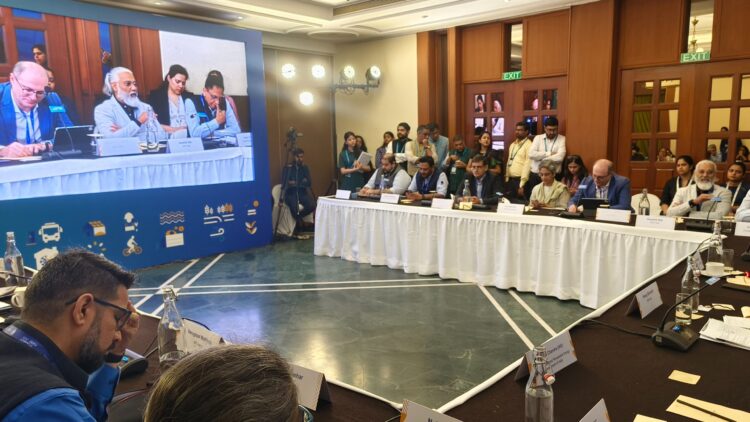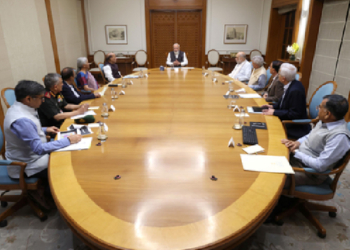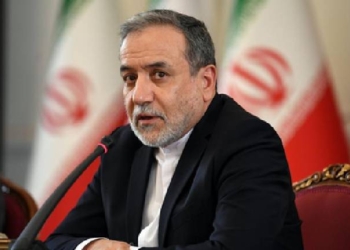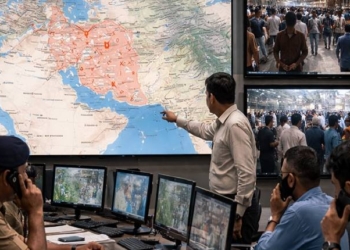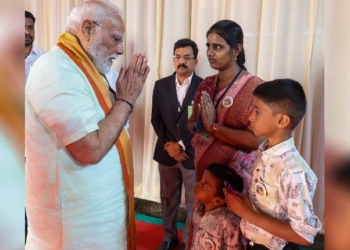New Delhi: As India looks toward a predominantly urban future, experts on Tuesday said state-level urbanisation policies would be critical in bridging gaps in how cities are defined, governed, and planned.
Highlighting Kerala’s comprehensive urban policy report, Debolina Kundu, Director at the National Institute of Urban Affairs (NIUA), said: “Around 35 per cent of India’s population is urban, one-third is rural, and the rest lives in transitional spaces. This is where state urban policies become crucial, by identifying transitional areas and adopting definitions that are more dynamic and future-ready.”
Speaking at the Plenary Session at WRI India’s flagship event, Connect Karo 2025, here, she further said: “Take Kerala, for instance: while 48 per cent of its population was effectively urban in 2011, only 26 per cent was classified as such by administrative definition, with the rest spread across census towns that form the urban agglomeration.”
She added that while the Census provides a static snapshot once every decade, states can complement this with continuous assessment of urban and peri-urban transitions. This would allow for timely spatial planning, targeted infrastructure investments, and resource mobilisation.
Addressing the role of building climate-resilient infrastructure in cities, Umamaheswaran Rajasekar, Advisor, Urban Resilience, Coalition for Disaster Resilient Infrastructure (CDRI), said, “Seventy per cent of losses to infrastructure are due to hydrometeorological events — a number that will only rise with climate change, making management increasingly complex.”
“Storm drains, for example, require sustained investment and maintenance. Building resilience is not just about hard infrastructure; it’s also about enabling communities to withstand and recover from these shocks.”
Connect Karo 2025 brings together leaders committed to critical issues related to sustainable cities, clean energy, food, land and water, and climate action and finance.
The two-day convening is hosting more than 150 thought leaders, experts, academics, scientists and civil society members to discuss the most urgent development and environmental challenges of our times.
The convening offers a diverse range of sessions, exploring themes like urban resilience and economic development, air quality, India’s clean energy transition, food loss and waste, public spaces, heat mitigation, flood management, green skilling and much more.
The convening also included “Stories that Matter,” a vibrant exhibition highlighting the power of people-centred approaches in tackling climate and development challenges.
Speaking about the significance of the convening, Madhav Pai, CEO, WRI India, said, “At Connect Karo, WRI India brings together important stakeholders and convenes conversations on clean energy, food systems, public spaces, mobility and net zero transitions — the building blocks of India’s low-carbon, resilient and equitable future.”
“We are not just on track but ahead in meeting our climate commitments,” said BVR Subrahmanyam, CEO, NITI Aayog, at Connect Karo 2025.
“India is undertaking an unprecedented experiment to become a developed nation by 2047, while walking a low-carbon path. No country of our size has ever attempted this, and the India Development Model can become a role model for the world.”
Subrahmanyam further said, “Despite contributing only 3-4 per cent of cumulative global emissions, India is among the most climate vulnerable nations, facing devastating floods, heatwaves and other impacts every year. We are not just on track but ahead in meeting our climate commitments. The challenge now is making projects viable to unlock the trillions needed for a green transition.”
(IANS)




